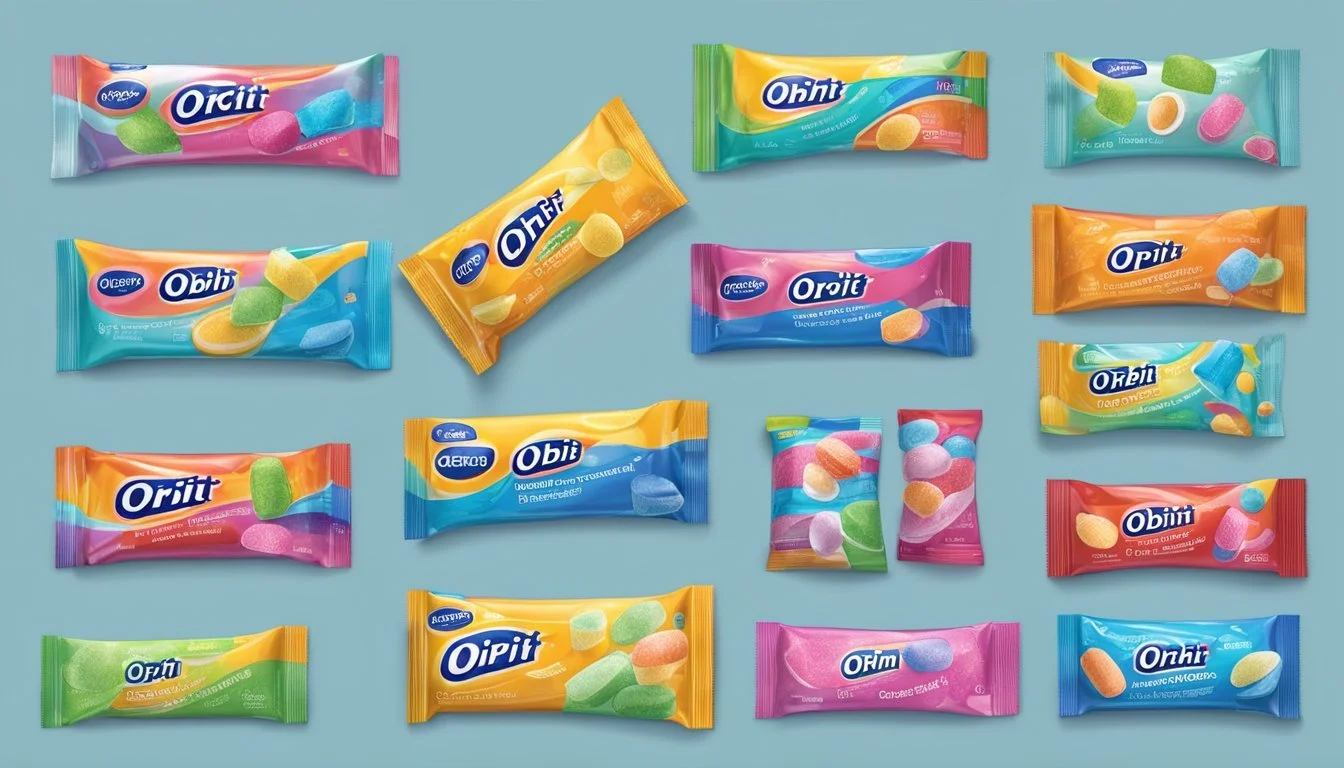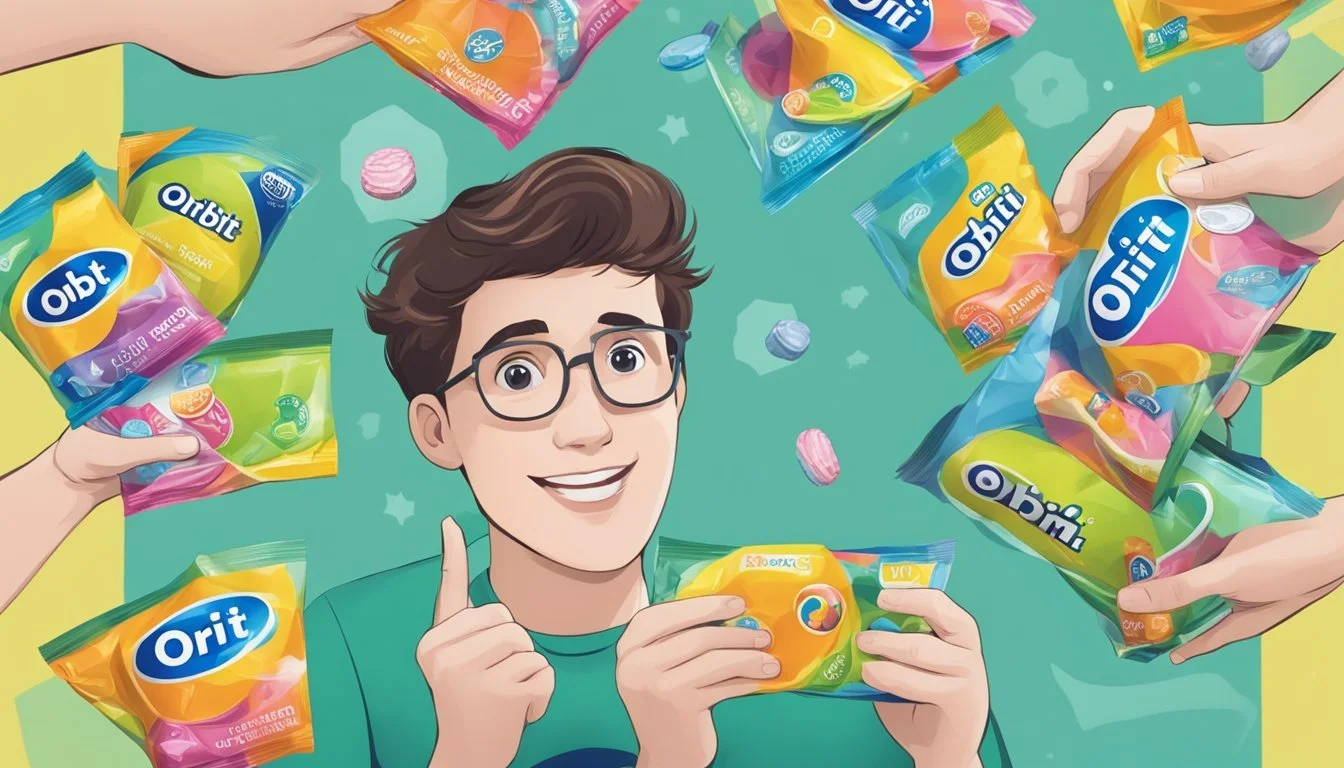How Many Packs of Orbit Gum Per Day Is Excessive?
Understanding the Limits
Chewing gum, especially sugar-free varieties like Orbit, is a popular way to freshen breath and curb cravings for snacks. Sugar-free gums often contain artificial sweeteners such as sorbitol, which can have laxative effects in large quantities. Therefore, moderation is key when incorporating gum into one's daily routine.
Understanding the impact of excessive gum chewing on health is crucial. While a piece of gum here and there is generally harmless, consuming several packs a day on a regular basis can lead to unexpected side effects. These can range from gastrointestinal discomfort to more serious issues such as severe diarrhea and potential weight loss, specifically related to the high sorbitol content in sugar-free gum.
Providing accurate and relevant information becomes essential in gauging how much gum is too much. It is generally safe to chew sugarless gum; however, individual tolerance to artificial sweeteners varies. As a result, it is important to listen to one's body and be aware of any adverse reactions that may signal an excessive intake.
Understanding Gum Ingredients
When considering how many packs of Orbit gum one might consume, it's essential to be aware of the ingredients in the gum, specifically the artificial sweeteners and the gum base components, which are critical to both the flavor and texture of the gum.
Artificial Sweeteners
Orbit gum, like many sugar-free chewing gums, contains a variety of artificial sweeteners. These sweeteners provide the sugary taste without the calories that sugar contains, which is appealing for those watching their sugar intake. In Orbit gum, commonly used artificial sweeteners include:
Sorbitol: A sugar alcohol that offers a sweet taste with fewer calories.
Xylitol: Another sugar alcohol known for its dental benefits, such as reducing the risk of cavities.
Aspartame: A low-calorie sweetener that is significantly sweeter than sugar. It is often used in conjunction with other sweeteners to provide a more sugar-like taste.
Acesulfame K: Often used alongside other sweeteners to enhance the sweet flavor without adding calories.
These sweeteners are chosen not only for their lack of calories but also for their ability to withstand the chewing process without breaking down.
Gum Base Components
The base of the gum is what gives it its chewy texture. Orbit gum contains various components to create this base:
Gum Base: This ingredient is what provides the chewiness and is made from a blend of materials such as elastomers, resins, and waxes.
Glycerol: It acts as a softener to maintain the gum's moist chew.
Hydrogenated Starch Hydrolysate: It contributes to texture and stability.
Soy Lecithin: An emulsifier that helps blend and maintain the consistency of the gum base.
Preservatives such as BHT (Butylated Hydroxytoluene) may also be included to prolong shelf life. These components are vital in giving Orbit gum its unique texture and chew quality.
Health Implications of Excessive Gum Chewing
Chewing gum in moderation can promote oral health and aid in stress reduction, but excessive consumption may have detrimental effects on various aspects of health, particularly dental wellbeing, digestive function, and musculoskeletal integrity.
Dental Concerns
Excessive chewing gum use can raise the risk of dental issues such as cavities, particularly when the gum contains sugar which promotes tooth decay. In contrast, sugar-free gums often contain artificial sweeteners like sorbitol which, while beneficial for reducing cavities, can lead to diarrhea and weight loss when consumed in large quantities. Dentists recommend moderation and thorough brushing to mitigate these risks.
Digestive Health Issues
Indulging in too many pieces of sugar-free gum every day can initiate digestive issues. Sorbitol and other sugar alcohols are common in sugar-free gums and can act as laxatives, potentially causing diarrhea and weight loss. Furthermore, excessive gum chewing can lead to increased gas and stomach bloating, and for those with irritable bowel syndrome (IBS), symptoms can worsen.
Musculoskeletal Effects
The regular and persistent movement of chewing can strain the muscles influencing the temporomandibular joint (TMJ), leading to jaw pain and headaches. In some cases, this can contribute to temporomandibular joint disorders (TMD), which entail a range of complications that can affect jaw movement and comfort. Doctors may suggest limiting gum intake to prevent or alleviate these musculoskeletal symptoms.
Nutritional Information and Serving Guidelines
In considering the consumption of Orbit sugar-free gum, it is crucial to understand its nutritional profile and recommended serving sizes to maintain dietary balance and avoid excessive intake.
Calorie Content and Weight Concerns
Orbit sugar-free gum contains a low calorie count, typically around 5 calories per piece. Being sugarless means it does not contribute sugar to one's daily intake, which can be beneficial for weight management. However, as with any food product, consuming it in moderation is important. Excessive consumption, even of a low-calorie product, can contribute to an increased daily calorie load and may impact weight if not accounted for within the caloric needs of an individual's diet.
Packaging and Serving Information
Orbit gum is typically packaged in multiple piece packs, with individual serving sizes generally being one piece of gum. The information provided often states amount per serving where calories and other nutritional values are measured. A standard pack may contain 14 to 30 pieces, depending on the product size purchased, which can provide numerous servings.
Nutrient Amount Per Serving % Daily Value* Total Fat 0g 0% Sodium 0mg 0% Total Carbohydrate 1g 0% Sugars 0g --
*Percent Daily Values are based on a 2,000 calorie diet.
Consumers should note that the % Daily Value (DV) provides context on how much a nutrient contributes to a daily diet. As Orbit gum is sugar-free, it uses sweeteners like aspartame and does not contain sugar, helping individuals manage their sugar intake. However, individuals should check the packaging for specific details, as these can vary by product. It is also recommended that buyers refer to the registry of ingredients on the pack to ensure it aligns with their dietary preferences and restrictions.
Orbit Gum Daily Consumption Recommendations
Consuming Orbit gum can freshen breath and may aid in oral hygiene between regular brushing. However, moderation is key with all food products, including sugar-free gums like Orbit. As with any gums containing sugar alcohol, such as sorbitol found in Orbit, excessive consumption can cause digestive issues, including diarrhea.
Daily Limits: Healthcare professionals often advise limiting sugar-free gum intake. While Orbit does not list a specific recommended daily amount, a general guideline based on its sorbitol content would suggest moderation.
Sugar Alcohol Content:
Sorbitol: Each piece of Orbit gum typically contains less than 2 grams of sugar alcohols.
Recommended Limit: No more than 5 grams of sorbitol per day to prevent laxative effects.
Practical Guide for Consumption:
Amount Description 1-2 pieces Safe to enjoy after meals for dental hygiene. 3-5 pieces Likely harmless but monitoring for digestive discomfort is advised. 5+ pieces May risk digestive issues, caution is advised.
Individuals with specific health conditions or on medication should consult with their doctor for personalized advice on the consumption of products containing artificial sweeteners, such as Orbit gum. The intent is to enjoy the benefits of the product without negative side effects.
In conclusion, Orbit gum, enjoyed in reasonable amounts, is a convenient option for a fresh breath and dental health support, but always in alignment with one's health and dietary considerations.
Alternatives and Substitutes to Chewing Gum
For individuals looking to reduce or replace their gum chewing habit, several practical alternatives and behavioral changes can offer relief from oral cravings without regular gum consumption.
Natural Chewing Substitutes
1. Raw Vegetables: They can chew raw vegetables such as carrots, celery, or cucumber sticks, which are sugar-free and beneficial for dental health. 2. Sunflower Seeds: A small handful provides a satisfying crunch and can occupy the mouth, potentially helping to reduce smoking habits. 3. Herbal Chew: They can opt for natural herbal chews, which come in various flavors and are free from nicotine and tobacco.
Behavioral Changes
1. Mindfulness Techniques: They can practice mindfulness when cravings hit, focusing on the sensation of breathing instead of defaulting to chewing gum. 2. Increased Water Intake: Sipping on water throughout the day can keep the mouth busy and help with hydration. 3. Sugar-free Mint or Lozenges: If they still desire a burst of freshness, sugar-free mints or lozenges are suitable substitutes for frequent gum chewers.
Oral Hygiene and Freshness Strategies
Maintaining fresh breath and oral hygiene is essential for overall health and self-confidence. One should regularly brush their teeth twice a day, which not only helps freshen the breath but also removes plaque—the primary home for bacteria that cause bad breath.
Chewing gum, such as sugar-free options like Orbit, can be a secondary strategy to maintain oral freshness. Chewing gum stimulates saliva production, an essential element in neutralizing acids and washing away food particles and bacteria that can lead to bad breath.
When selecting a gum, it is vital to look for those that have been recognized for their oral-care benefits, such as products that have received the American Dental Association Seal of Acceptance. Orbit gum offers sugar-free choices that are low in calories and can contribute to oral health when brushing isn't an option.
Here are simple steps to maximize oral freshness:
Brush: 6-10 grams of xylitol-containing toothpaste, which is about two brushings.
Supplement with a teaspoon of xylitol, which can be added to breakfast foods.
Bad breath, often due to increased bacterial activity, can also be mitigated by favoring gum flavors like cinnamon, which has antibacterial properties. However, one must remember that these methods are supplements to, but not replacements for, professional advice and routine dental care.
It's suggested that individuals chew gum for 20 minutes after eating. Overconsumption may lead to gastrointestinal discomfort, so moderation is key. They must consult with a dentist for personalized oral hygiene advice and adhere to a routine that best suits their oral health needs.
Consumer Guidance
When selecting a sugar-free gum like Orbit, consumers often consider taste, health benefits, and product ratings. Understanding the appropriate consumption quantity is crucial since excessive intake of sugar-free gum can cause digestive issues due to the presence of artificial sweeteners like sorbitol.
Product Selection
Selecting Orbit gum entails assessing both flavor and the artificial sweeteners used in the product. Orbit offers a variety of choices, with some of the popular flavors including Spearmint and Bubblemint. As a sugar-free option, the gum typically contains sweeteners such as sorbitol, which in large amounts, can act as a laxative leading to digestive discomfort.
Similar Items:
Trident
Extra
5 Gum
Buy It Again:
Consumers often repurchase their favorite flavors or experiment with new ones offered by Orbit.
Featured Products:
Orbit Bubblemint Sugarfree Gum
Orbit Spearmint Sugar Free Chewing Gum
Expert and User Reviews
Expert nutritionists and dietitians advise that while chewing sugar-free gum like Orbit can aid in dental health by reducing cavities, excessive consumption should be avoided. User reviews often reflect a satisfaction with the gum’s flavor and mouth-freshening qualities but occasionally highlight the laxative effects of overconsumption.
Guest Ratings:
Orbit Bubblemint: 4.7/5 stars
Orbit Spearmint: 4.6/5 stars
Reviews:
"Great taste and long-lasting flavor!"
"Helped curb my cravings but caused bloating when chewed excessively."
Conclusion
In considering the consumption of Orbit gum or any sugar-free gum, moderation is key. While there are no exact numbers established for the maximum packs of gum one should chew daily, health experts suggest that excessive consumption can lead to gastrointestinal issues due to the presence of artificial sweeteners like sorbitol.
Daily Limits
A reasonable limit to avoid adverse effects might be around 1-2 packs.
Each pack typically contains 14 pieces.
Health Considerations
Individuals may experience diarrhea and weight loss if they consume large amounts of sorbitol.
Overconsumption can also lead to dental problems if gum contains sugar.
Chewing gum may cause bloating and gas, attributed to both air swallowing and sugar alcohols.
Recommendations for Chewing Gum:
Choose sugar-free options to prevent cavities.
Limit consumption to avoid gastrointestinal discomfort.
Monitor any negative reactions, and adjust intake accordingly.
Consider the caloric intake, even though minimal, when chewing sugared gum.
One should always listen to their body and adjust gum chewing habits if any negative symptoms arise. Consulting with a healthcare provider for personal advice on diet and gum consumption is a prudent approach, as individual tolerances to sweeteners like sorbitol can vary.










